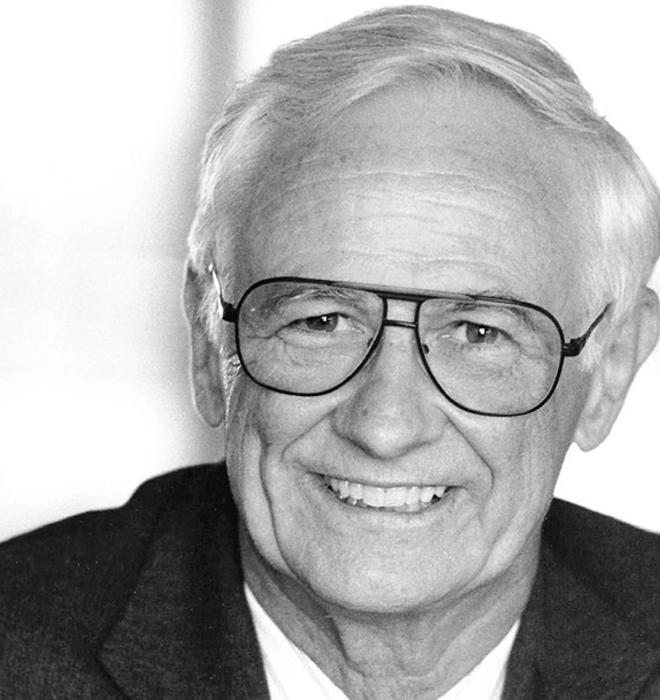
AUG. 30, 1927 | JAN. 21, 2017
WILLIAM NORRIS ’51 CHAMPIONED progressive social-justice issues throughout his life — some from the bench of the 9th Circuit Court of Appeals. One case in particular made him a hero to those who had longed for support of gay rights from the federal courts.
Born in the working-class town of Turtle Creek, Pa., Norris was appointed to the San Francisco-based 9th Circuit by Jimmy Carter in 1980. In 1988, he authored the opinion of a three-judge panel in Watkins v. United States Army, a case brought by Sgt. Perry Watkins after the Army sought to dismiss him for being gay. Watkins — a highly regarded soldier who never hid the fact that he was gay — had re-enlisted three times before the Army sought his discharge.
In his opinion, Norris wrote that Army regulations banning gay men and women from service violated the constitutional guarantee of equal protection. It has been described as the first to use a constitutional analysis in a gay-rights case.
“A Wise Court Salutes Tolerance” was The New York Times’ response to Norris’ decision. The editorial’s lead paragraph summarized his opinion: “Homosexuals may not be kept out of the Army: Their claims for equal protection under the Constitution are as strong as those of blacks ... .”
Norris’ opinion was not in step with Supreme Court precedent at the time, and it sent hope to gay men and lesbians. A larger 9th Circuit panel later reconsidered the decision; that panel also ruled in favor of Watkins but did not base its ruling on a constitutional analysis.
Nevertheless, the spirit of Norris’ opinion endured, inexorably linking LGBT Americans to other classes shielded from discrimination by the equal-protection clause of the Constitution — the same legal bedrock that the Supreme Court would put forth in its affirmation of gay marriage 25 years later.
Edward Lazarus, who clerked for the judge during Watkins, recalls Norris’ writing process as exacting to the point of agony. “All of his opinions were deeply, deeply analyzed and thought through,” he says. “Watkins may be his most famous opinion, but it doesn’t stand alone. It’s in the fabric of a life devoted to a broad range of social-justice issues.”
Norris often cited Princeton as vastly formative, according to his widow, Jane Jelenko. The judge attended the University on the G.I. Bill after Naval service, won a full scholarship to Stanford Law School, and later clerked for Supreme Court Justice William O. Douglas.
“My father was an eternal optimist,” says Kim Norris. “We would have political debates, and he’d always emphasize: Don’t just complain, what are you gonna do about it?”
Norris followed his own advice — when he wasn’t on the bench, he was active in civic affairs. He was a delegate to several Democratic national conventions (he was at the Ambassador Hotel when Robert F. Kennedy was shot) and helped elect Los Angeles’ first black mayor, Tom Bradley. He also helped to establish the Museum of Contemporary Art, Los Angeles, serving as founding president from 1981 until 1992. His memoir, Liberal Opinions: My Life in the Stream of History, was published last year after his death.
“To the extent that he could affect the right thing to do for our country and the rights of the disadvantaged from the bench, he did,” says Jelenko. “But in all other ways in his life, he always stood for something worthwhile and good.”
Carrie Compton is an associate editor at PAW.






No responses yet